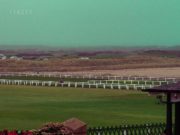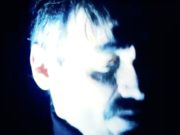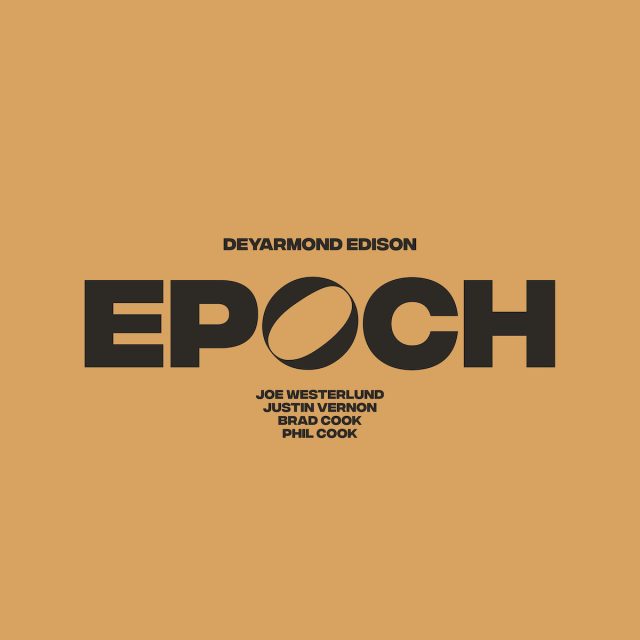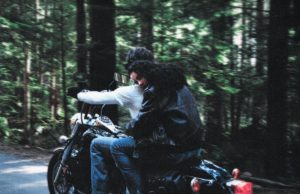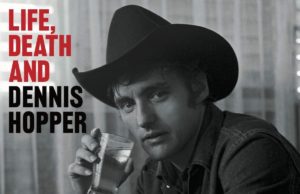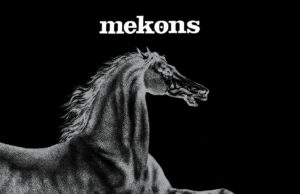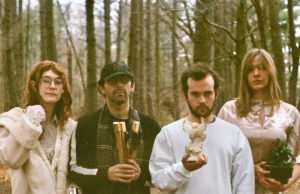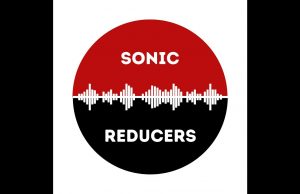THE EDITED PRESS RELEASE: “Let’s cut straight to the quick, OK? The only reason you may know DeYarmond Edison — the short-lived band at the core of this five-LP, four-CD, 60,000-word tome titled Epoch — is that it birthed two other bands you almost absolutely know: Bon Iver and Megafaun.
And no, birthed is not too strong a word. When the Wisconsin-founded quartet broke up in August 2006 in their new hometown of Raleigh, N.C., three-quarters of the band started Megafaun within days. Within weeks, Justin Vernon was returning north, shaping Bon Iver amid his season of hibernation. The ideas that DeYarmond Edison developed together unequivocally prompted its more famous successors, splitting it apart before you or most anyone else could know about it. One aim of Epoch is to offer retrospective insight, or to trace For Emma, Forever Ago and Bury the Square, Heretofore and 22, A Million back to true headwaters: These bonds of small-town childhood friendship and collective artistic ambition, even if they became too much to bear.
DeYarmond Edison emerged in the early days of the 21st century, the remnants of a pinballing funk-rock-reggae-jazz high-school group called Mount Vernon reordering themselves to try on charming folk songs about the idylls of Wisconsin’s serene Chippewa Valley. With DeYarmond Edison, Vernon sang these scenes in his sincere baritone, flanked by two brothers — bassist Brad Cook and multi-instrumental whiz Phil Cook — with whom he shared a preternatural musical ease and personal rapport. As they prepared their self-titled debut, a primo bit of Midwestern melancholia graced by the inspiration of Bill Frisell, assorted drummers and friends rotated in and out. Still in their early 20s, DeYarmond Edison already seemed and sounded like elder statesman of Eau Claire, framing the horizon with folk-rock genteelness.
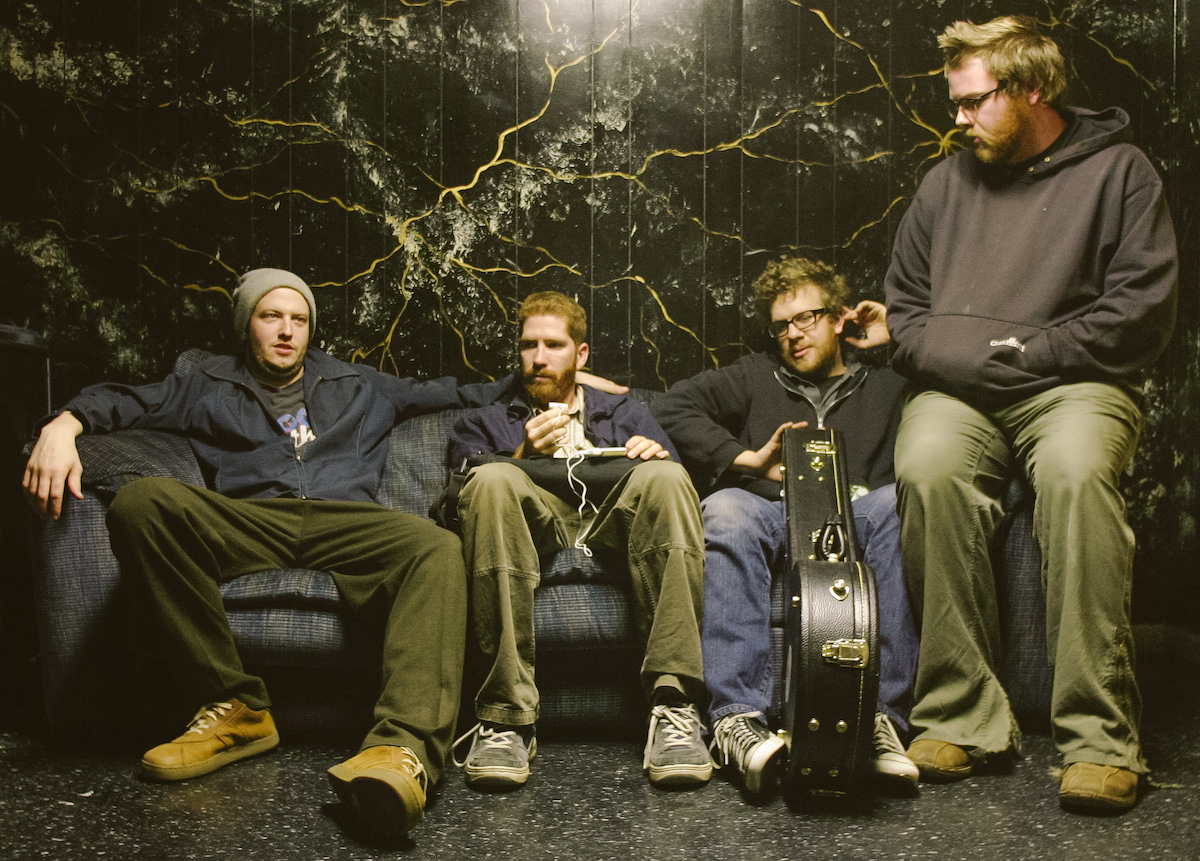
But other bands soon infiltrated this safe bubble, straining the familiar dynamic and prompting a choice: Stay in Wisconsin and settle into old patterns, or head anywhere else and try to become the more interesting band they imagined, to join the emerging vanguard of uncanny American folk. They chose the latter. Their old friend and bandmate Joe Westerlund had just finished studying with Milford Graves in the Vermont mountains, and he too craved a next phase. As they finished their subtly stunning second album, Silent Signs, they all picked Raleigh without ever having visited or even knowing anything at all about the place.
It was the correct decision, even if ultimately fatal. Though a capital city, Raleigh, like Eau Claire, was somewhat fallow terrain, its long-storied music scene slowly rising from a temporary trough toward a brilliant new peak. DeYarmond Edison slipped right into that upward arc upon arrival on Aug. 1, 2005, making fast friends in record stores and rock clubs and restaurant kitchens and playing at almost every chance. The pivotal moment emerged four months after their landing, when a local producer who had worked on Elliott Smith’s final album offered them the invitation they craved — a monthly residency at the region’s best art gallery, no strings attached or expectations imparted. Just play.
They took this chance to reinvent themselves by digging into the musical disciplines they each loved, then teaching one another how to do it. Phil studied the blues and bluegrass so rich in their adopted home. Joe focused on expanding his improvisational practice, leading his bandmates toward spontaneous composition. Brad studied minimalism and electronics, fashioning them into inquisitive pieces. And Justin pondered the voice, not only goading the rest of DeYarmond Edison to sing but also trying out novel modes for himself — namely, a falsetto. Their rehearsals and sets became skill-share seminars, each member offering the intel that would push DeYarmond Edison far beyond Midwestern melancholia.
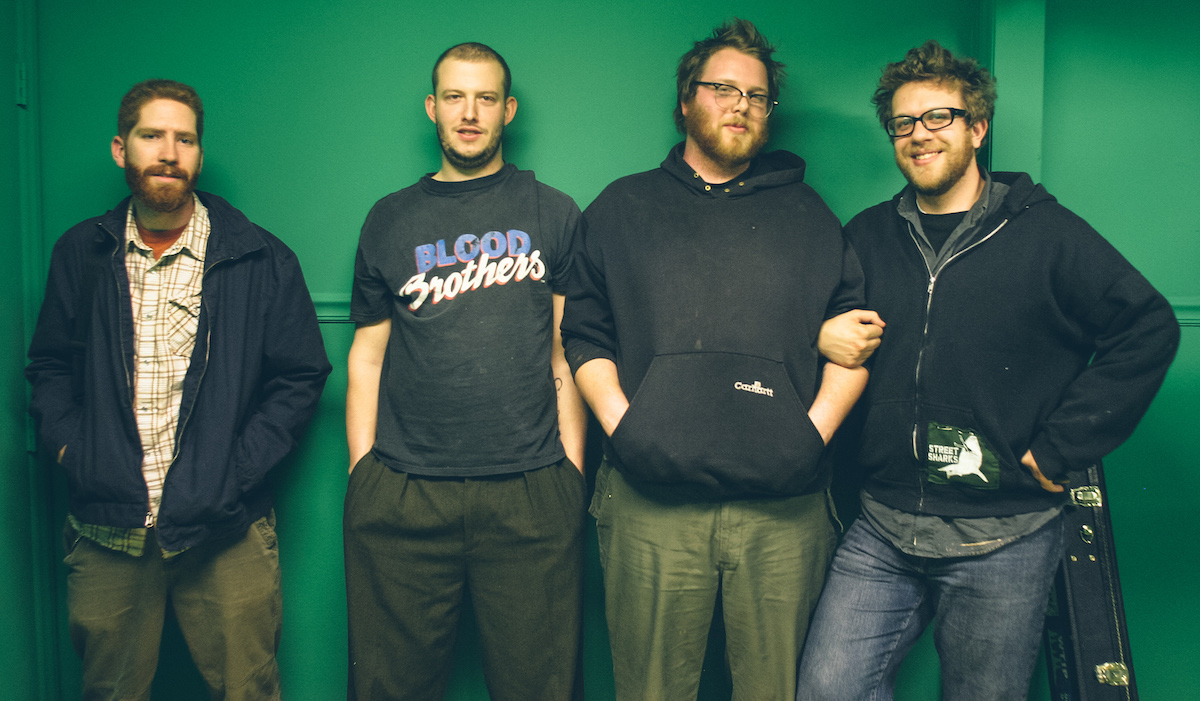
It worked. A year after their arrival in North Carolina, they were, remarkably, a new band, suddenly resurfacing old songs with microtonal drones and spectral harmonies and wispy electronics. DeYarmond Edison had just finished translating it all into a brilliant EP, as rewarding as it was challenging, when they snapped, a once-productive tension suddenly ratcheted by sickness, sadness, solo albums, and Southern heat. At the very height of their collective power, DeYarmond Edison broke up in August 2006. More than a decade of powerful music — Bon Iver, Megafaun, Gayngs, Volcano Choir and on and on and on — flowed out of what seemed in that bygone moment to be utter disaster.
Epoch stretches from the beginning to far beyond what once felt like the dismal end. Those early and perhaps embarrassing days as Mount Vernon begin this massive set, alongside choice cuts from DeYarmond Edison’s debut. Silent Signs has been remastered and pressed to vinyl for the first time, as well as that EP, long lurking in a quiet MySpace corner. Those residency sets and a triumphant return to a palatial Wisconsin theater are here, too.
Justin’s stunning solo For Emma precursor, hazeltons, is here in full, as are tapes from the very first Megafaun rehearsal. And then there are the reunions, whether it’s Justin welcoming Megafaun onstage with Bon Iver or vice versa. The circle closes, reopens, and slowly closes again. This saga is all exhaustively documented in a loving book (loaded with previously unpublished photos) by music journalist and executive producer Grayson Haver Currin, who met DeYarmond Edison five days after they moved to Raleigh and became (remains?) their biggest fan.
Epoch is a massive feat of vulnerability. These musicians all have solid careers now, whether as celebrated session drummer or exquisite solo pianist, generational songwriting pathfinder or in-demand record producer. What is to gain, then, by pulling these skeletons out of the closet, by exposing these naked baby photos, even in the loving context of a completist box set made by an old friend? There is so much to say here about mended fences, about the past coming back to haunt and sometimes to heal.
But the prevailing lesson may be one of small-town transcendence, of big dreams and bigger bonds in little places you’ve never considered reaching far beyond their city limits. Epoch is a testament to the magic that can happen when no one is looking, when all that imagination and innovation require are a cheap house and the drive to reshape your world, together.”







